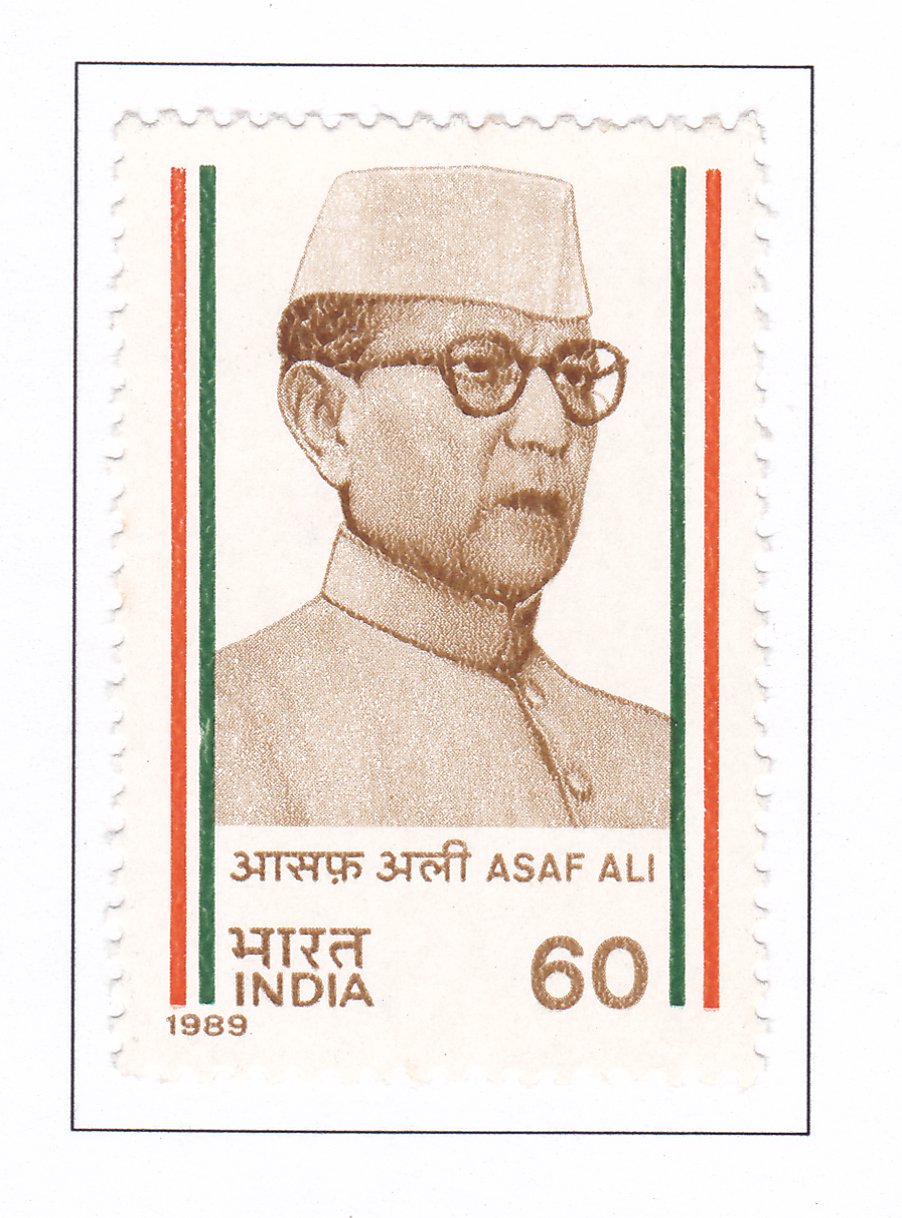Asaf Ali

Technical Data
| Stamp Set | India's Struggle for Freedom |
|---|---|
| Date of Issue | May 11, 1989 |
| Denomination | 60 p |
| Quantity | 1,000,000 |
| Perforation | comb 13 |
| Printer | Security Printing Press, Nashik |
| Watermark | No Watermark |
| Colors | Multicolor |
| Catalog Codes |
Michel IN 1218 Stamp Number IN 1277 Yvert et Tellier IN 1020 Stanley Gibbons IN 1349 |
| Themes | Diplomats | Famous people | Headgear | Lawyers-Advocates | Men | Optical Instruments | Politicians |
Commemorative Stamp Set: Asaf Ali
Design Elements:
The stamp set features a portrait of Asaf Ali, possibly in his diplomatic attire or engaged in legal discourse, alongside symbolic representations of Indian and Western cultures. It includes motifs highlighting his roles as a nationalist, scholar, lawyer, and advocate for secularism.
Cultural and Historical Significance:
Asaf Ali, born on 11th May 1888, was a pivotal figure in India’s struggle for independence and the shaping of its secular democratic foundation. Educated in law in London, he became a successful barrister and aligned himself with Mahatma Gandhi’s non-cooperation movement. His marriage to Aruna Ganguly in 1928 symbolized a union against societal norms, drawing significant public attention.
Usage:
This stamp set commemorates Asaf Ali’s contributions as a leader in India’s freedom movement, his tenure as India’s Railway Minister, Ambassador to the USA, Governor of Orissa, and Ambassador to Switzerland. It serves to honor his advocacy for secularism and cultural synthesis.
Importance of the Commemorative Stamp Set:
Issuing this stamp set honors Asaf Ali’s pivotal role in India’s transition to independence and his steadfast commitment to secularism and cultural harmony. It educates the public on his multifaceted contributions to law, diplomacy, and cultural exchange.
Example of the Stamp Design:
The stamps depict key moments from Asaf Ali’s life, including his legal career, activism in the freedom struggle, diplomatic achievements, and cultural interests. They include symbols representing his advocacy for secularism and the synthesis of Hindu and Islamic cultures.
Significance:
Asaf Ali’s legacy as a scholar, lawyer, nationalist, and diplomat exemplifies his dedication to India’s secular democratic ideals and cultural harmony. His contributions continue to inspire generations, reflecting the values of inclusivity and unity in diversity.
